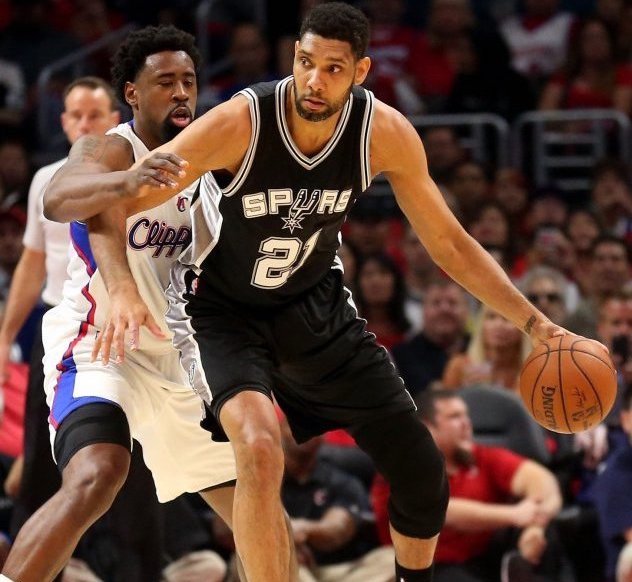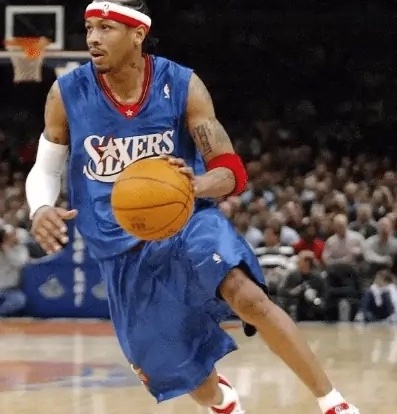Expansion and Franchises Moves:
The Charlotte Bobcats joined the league in 2004, bringing the total number of teams to 30 and being the last expansion team added to the NBA so far. Furthermore, the Vancouver Grizzlies relocated to Memphis in 2001 and the Seattle Supersonics relocated to Oklahoma City in 2008, becoming the Oklahoma City Thunder.
Playstyle:
The 2000s featured more high scoring games with great individual performance by players like Kobe and Dirk. Additionally, play around the perimeter of the court and the three pointer started to become an integral part of the game with teams planning to use it in their offensive strategies. Therefore, players who specialised and were known for their three point shooting started to emerge, including Ray Allen and Peja Stojakovic.
However, even though there were more three point shots in the 2000s, big men still remained prolific scorers and players in the league. For example, players like Shaq, Tim Dancan and Kevin Garnett were some of the best players in the 2000s with Shaq making only one three in his whole career. Fast paced transitions like fast breaks also remained as strategic opportunities to score points in the league, where fast point guards like Steve Nash and Jason Kidd could capitalise on these quick turnovers. Defensive specialists or players who were tall and could block shots also became important players and played pivotal roles for teams in the 2000s.
The concept of ‘small ball’ featuring smaller players who were agile and good three point shooters was also experimented with, which is a considerable change seeing many of the previous eras being totally dominated by big men. This led to the recognition and prominence of more point guards and shorter players in the league such as Steve Nash, Jason Kidd and Cris Paul.
Rules and Innovation:
Instant replay was introduced in 2002 so plays could be reviewed quickly, especially last second plays like buzzer beaters. Also, in 2007 the use of instant replays was expanded so referees could review other fouls as well. Also, in 2000 teams were allowed another timeout, increased to seven from six. To add, illegal defence where a player had to be guarding a player in the paint was removed and zone defence was allowed, where players would each guard a zone of the court. Other rules to limit defence were also added throughout the 2000s. In 2001 a five second back to basket rule was also implemented meaning you couldn’t dribble towards the basket with your back facing the basket for more than five seconds.
Notable Players and Teams:
The 2000s was led in championships by the Los Angeles Lakers who won four times with a three peat in the early 2000s helped by the duo of Shaq and Kobe. The San Antonio Spurs led by Tim Duncan also won three championships with the Detroit Pistons, Miami Heat and Boston Celtics each winning one.
One of the best players during the 2000s was Shaquille O’Neal also known as ‘Big Diesel’, standing at seven foot one, and winning four championships, three with the Lakers and one with the Heat. He averaged 23.1 points per game as well as 10.6 rebounds and achieved three finals MVPs.
Another great player in the 2000s was Kobe Bryant, who averaged 25.0 points per game in his career and won five championships with the Lakers. He is also widely considered one of the greatest scorers and players of all time and is fourth in all time points scored. Kobe was known for the hard work he put into his game as well as studying the game. With this mentality which he named the ‘Mamba Mentality’ he became one of the best players in the history of the game.
Cultural Impact:
The 2000s marked a change in basketball as recognition and popularity for women's basketball began to grow. Therefore, the league produced new stars and icons in women’s sport, such as Sue Bird, Lisa Leslie and Sheryl Swoops, inspiring many. Moreover, social media and further popularity in the sport driven by events like the Olympics allowed fans to gather and fanbases to engage with each other, contributing to the growth of the global fanbase of the sport. Due to this, the NBA roster went from 23 international players in 1991 to 57 in 2000 and 109 in 2007. Sneaker culture in the NBA continued to be prominent as well with more player signature shoes. Some popular signature shoes of the time include, Air Jordans, Adidas T-Mac (Tracy McGrady) and Reebok AI (Allen Iverson). Basketball shorts in this era also became the longest and baggiest they have ever been. The 2000s also saw a rise in streetball culture with a more casual playstyle where players could showcase their skills and flashy moves. This was largely popularised by the AND1 Mixtape Tours where streetballers would challenge local talent. The NBA and players also continued to influence music, fashion and many communities across the world.


 Tim Duncan
Tim Duncan  Baggy Shorts in the 2000s (Allen Iverson)
Baggy Shorts in the 2000s (Allen Iverson)